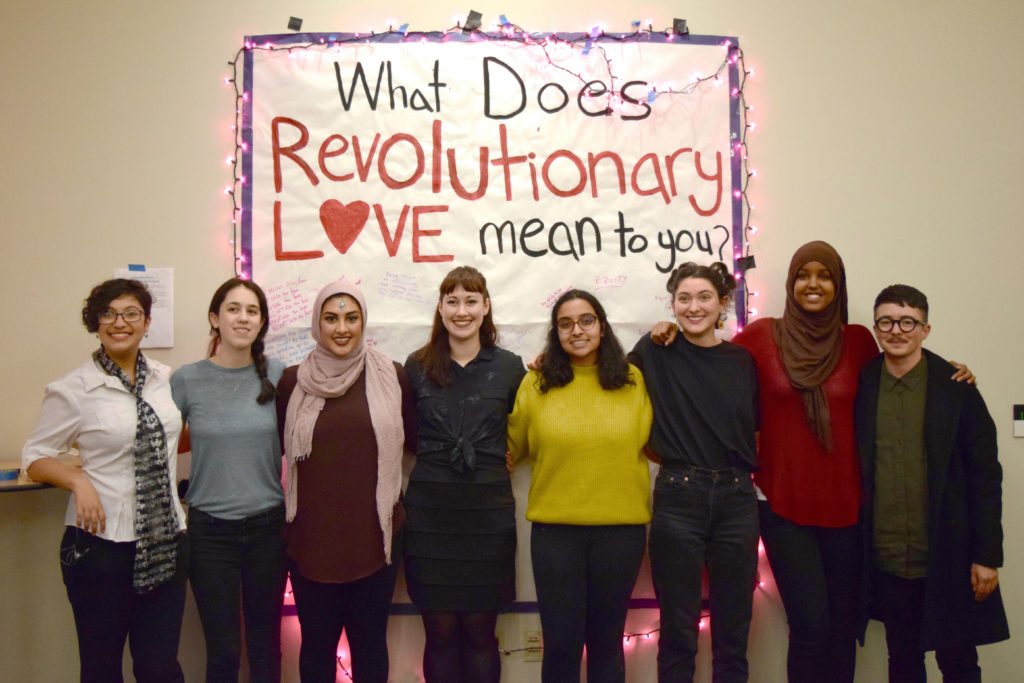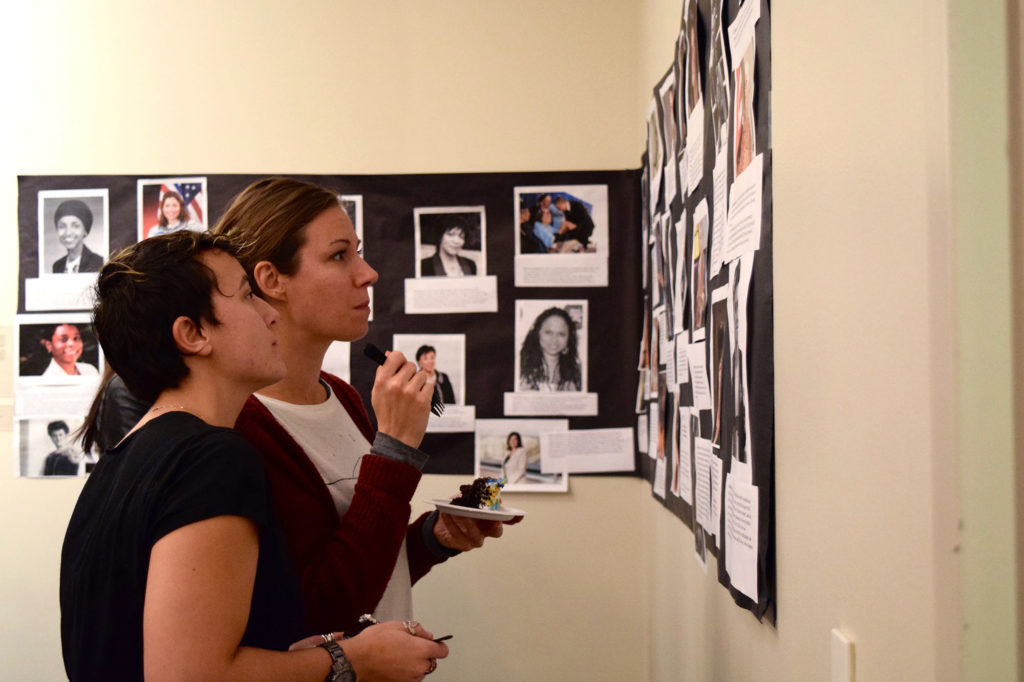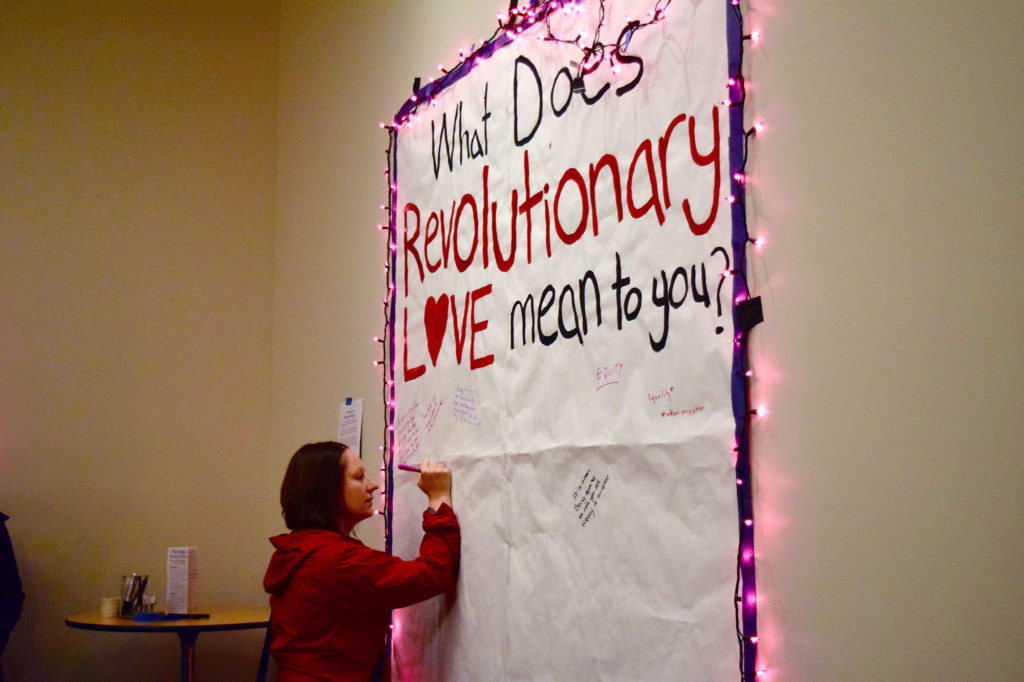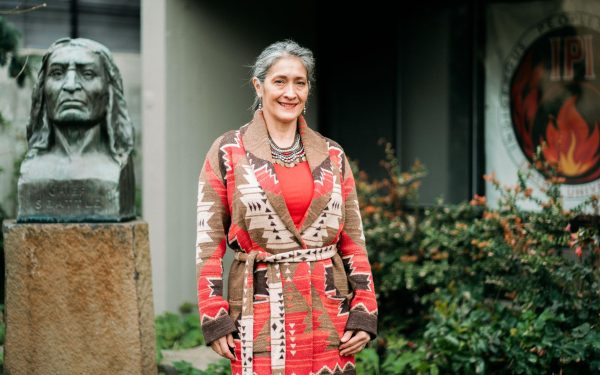Gender Justice Center Talks of a New, Revolutionary Love
The Gender Justice Center began a dialogue on their theme for the year in its opening event, Revolutionary Love.
The event featured Seattle University Law Professor Dean Spade as keynote speaker and performances from former mayoral candidate Nikkita Oliver, Ifrah Abshir, Ebo Barton and Shoooz.

The Gender Justice Center team and put on an exciting after-party after their empowering opening Revolutionary Love event which featured key note speaker Dean Spade (pictured far left) and spoken word poets.
Board Member of the Gender Justice Center Rachel Levelle noted the need for the Center and event.
“We really wanted to have something that was really [oriented] around what our mission is about,” they said, “which is about loving each other and turning the way that our society is based, and then shifting it a little bit into a newer way.”
As a lawyer and outspoken member of the trans community, Spade spoke of redefining social movements to bring those most marginalized to the center. He opened by reflecting on how love can be used as an excuse for oppressive systems.
“It’s actually an incredibly contested site and something that needs pretty deep revolutionary critical thinking for us to figure out what we believe about it and what it means to practice it,” Spade said.
Spade refers to the role of feminists in pointing out that marriage and family can reinforce unfair expectations of women when it comes to familial care. He also noted that harmful gender roles and norms have become naturalized.
Putting redefinition into a larger context of global social movements, Spade noted how people choose whom to help and care about. He emphasized that there are people who won’t be helped because they are considered undeserving. Spade stressed the importance of taking back the rhetoric and focusing on the whole of the marginalized.
“Our movements help us think about what is desirable and to fight back against the idea also that some people are undesirable,” Spade said.
Spade referred to the example of immigrant rights. He noted that some movements and people only help the immigrants who are accepted as deserving, such as the smart, hard working, etc. To combat this rhetoric, Spade encouraged the community to critically think about who campaigns are actually helping.

The Gender Justice Center team and spoken word poets put on an exciting after-party after their empowering opening event.
To refocus these campaigns, Spade proposes a complete flip of their structure.
“Contemporary social movements tend to be oriented to solving problems for the least marginalized in a group of marginalized people,” Spade said. “We want to turn it upside down so that it centers the people who are most marginalized.”
Spade said that social justice moves up, noting that tackling issues like transphobia for those in places like the youth jail, as opposed to only helping the “elite of the marginalized”, would genuinely address the issue.
Spade also noted that the emphasis of campaigns and of people’s attitudes should be shifted to focusing on those most disenfranchised.
“I think in some ways, for me, revolutionary love is the idea of everything for everyone—I think that’s the demand,” he said, adding that the focus should be changing how people on the bottom are suffering, as opposed to being worried about what people on top think of those activists.
Lastly, Spade spoke in a Q&A session on how people with intersectional identities can help other groups without drowning out those voices. Spade emphasized the importance of resisting the urge to act defensively.
“It’s a thing we really struggle with, speaking directly to each other and then hearing each other,” he said. “And I think the more privilege you have, the less skills you usually have in that.”
At the after party, Oliver performed two poems and a song on love, entitled “Stupid Pretty Face.” Barton performed three poems, one on the damage words can inflict. Shooz shared three poems, one was an ode to female friendships, one recognizing cycles of abuse and one poem promising to continue learning. Abshir performed a poem about parents’ love.
Posters hung on the walls, the first—a community vision board. Students wrote hopes of health equity, ‘everything for everyone’ and ‘freedom from destructive gender and sexuality norms’.
Students shaped their own definitions of revolutionary love on the second board, with some including “equality without exception,” “justice, care and advocacy,” and seeking to understand and be understood by others.
Sophomore Leah Wooley most appreciated Spade’s thoughts on withholding comments when listening.
“I feel like that’s something that I can learn,” she said, adding that “there’s so much really negative discourse right now that I feel like if we can learn to listen and to think and try to be more understanding and more loving that would be a really good thing for everyone.”
Senior Advisory Consultant of the Gender Justice Center Alice Clabaugh spoke of the impact of the event.
She said: “If we all live in a world where we embody revolutionary love in the midst of all the chaos, heartbreak and fear, we can find healing.”
Sofía may be reached at
[email protected]











